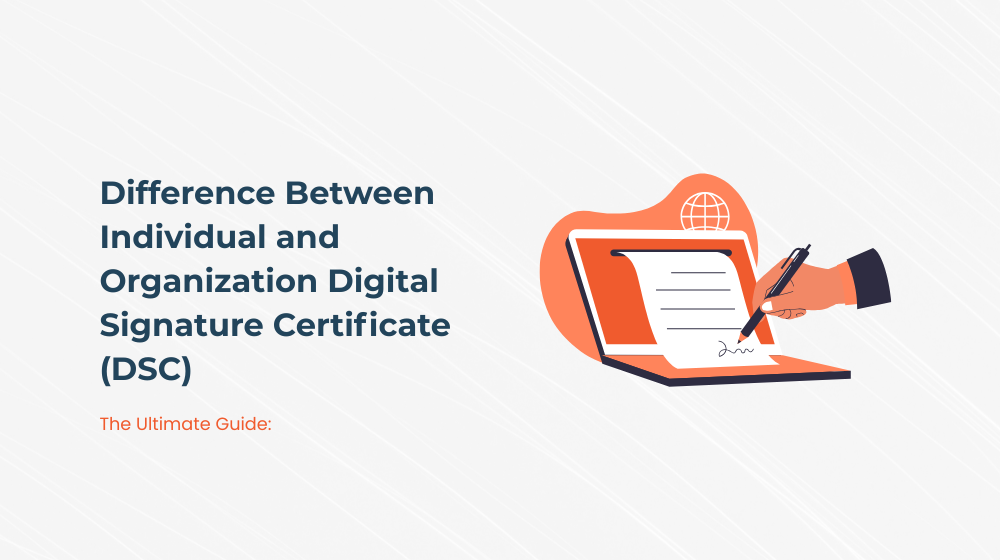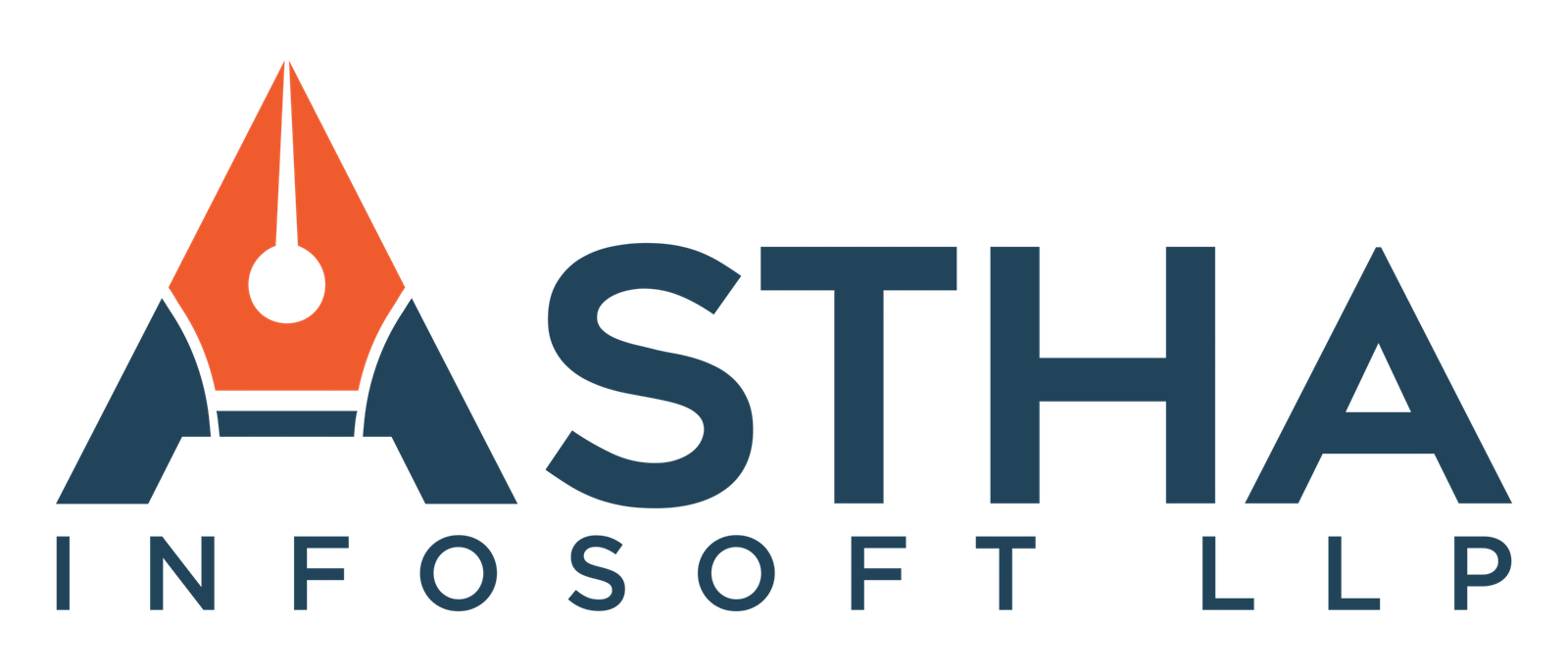
In an era defined by digital transformation, securing your electronic transactions is non-negotiable. Whether you are an individual filing your income tax return or a large corporation participating in an E-Tendering process, a digital signature certificate (DSC) is your foundational tool for security and legal compliance.
In the current digital landscape, the demand for secure and compliant digital solutions is skyrocketing, especially among businesses navigating regulatory frameworks like MCA and GST. However, many users struggle with a fundamental question: What is the exact difference between an Individual DSC and an Organization DSC?
Understanding this distinction is not just about compliance; it’s about choosing the correct identity proof for your specific legal needs. Digital Signature Certificate House (Astha Infosoft LLP) a trusted digital signature certificate provider in Ahmedabad has over 16 years of expertise guiding clients across India to make this crucial choice.
Within the next 10 minutes, we will provide an in-depth, actionable comparison of these two DSC types, helping you decide which certificate is right for you, your business, and your compliance requirements under CCA guidelines.
What is Individual DSC?
An Individual DSC is a certificate issued specifically to an individual person for their personal or professional capacity. The DSC maps the user’s identity (Name, Email, PAN) to their public key.
The validation process for an Individual DSC, especially a Class 3 DSC, primarily involves verifying the applicant’s identity and address through official documents and video verification.
Common Uses of Individual DSC:
- Income Tax Returns (ITR) E-Filing: Signing and submitting personal ITR forms and other tax-related documents.
- PF (Provident Fund) Applications: Attesting documents related to PF withdrawal or transfers.
- Signing Personal Documents: Securing private contracts, agreements, and proposals.
- ROC/MCA Filings: While primarily used by organizations, individuals (like Designated Partners or Directors) must also use their Individual DSC for specific forms.
If you are a salaried employee or a proprietor primarily dealing with individual tax matters, the Individual DSC is generally sufficient.
What is Organization DSC?
An Organization DSC is issued in the name of a legal business entity (Pvt Ltd, LLP, Partnership Firm, NGO, etc.). Critically, this certificate contains two types of information:
- The Individual’s Details: The name and designation of the authorized signatory (e.g., Director, Partner).
- The Organization’s Details: The name, address, and registration number (CIN/LLPIN) of the company.
When a document is signed using an Organization DSC, it legally binds the organization itself to the terms of the document, not just the individual signatory.
Mandatory Verification for Organization DSC:
Due to the higher legal risk, the applicant must provide proof of:
- The company’s existence (e.g., Certificate of Incorporation, GST registration).
- The signatory’s authority to act on behalf of the organization (e.g., Board Resolution).
Common Uses of Organization DSC (Actionable Insights)
The Organization DSC is necessary for high-stakes governmental and commercial transactions, particularly in competitive areas like E-Tendering nationwide.
- E-Tendering and E-Procurement: It is mandatory to have a Class 3 Digital Signature Certificate for E-Tendering to submit bids on government tender portals (e.g., GeM, IREPS). This is the single largest driver for Organization DSC requests.
- MCA Filings: Mandatory for signing all e-forms submitted to the Ministry of Corporate Affairs (MCA) by Directors and officials.
- DGFT (Directorate General of Foreign Trade): Required for applications related to EXIM (Import-Export) licenses and transactions. A specialized DSC for DGFT is often necessary.
- Bulk Document Signing: Used to sign thousands of invoices, challans, or documents in bulk, often via a specialized DSC token.
- GST Applications: Used by authorized signatories to submit various forms and declarations under the Goods and Services Tax framework.
Key Differences: Individual DSC vs. Organization DSC
To make the distinction clear and help you optimize for featured snippets, here is a detailed, skimmable comparison table covering the most important variables:
| Feature | Individual DSC | Organization DSC |
|---|---|---|
| Applicant Type | An individual person. | A legal entity (Company, Firm, Trust, LLP). |
| Validation Level | Individual identity verification (ID, address, video). | Individual identity plus proof of business existence and the signatory’s authority (Board Resolution, Company Docs). |
| Data Contained | Only the Individual’s Name and personal ID details. | Individual’s Name, Designation, AND the Organization’s Name & Registration Number (CIN/LLPIN). |
| Legal Binding | Binds the Individual person. | Binds the Organization (the company/firm). |
| Primary Use Cases | ITR filing, PF applications, personal contracts. | E-Tendering, MCA, DGFT, Bulk Invoice Signing, GST compliance. |
| Complexity of Issuance | Generally simpler and faster. | More documents required, longer verification time. |
| Price/Cost | Typically lower. | Generally higher due to enhanced verification standards (e.g., higher Class 3 DSC price for 3 years). |
Conclusion: Securing Your Digital Identity
The difference between an Individual DSC and an Organization DSC is simple yet profound: one identifies a person, the other identifies a legally registered entity. For most business compliance needs—especially for high-security applications like E-Tendering and MCA filings—the Organization Class 3 DSC is the required legal instrument.
Don’t compromise your compliance or security with the wrong certificate. Leverage the 16+ years of specialized experience offered by Digital Signature Certificate House (Astha Infosoft LLP) to get the correct, compliant, and competitively priced DSC today.

